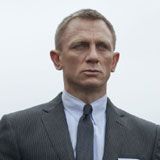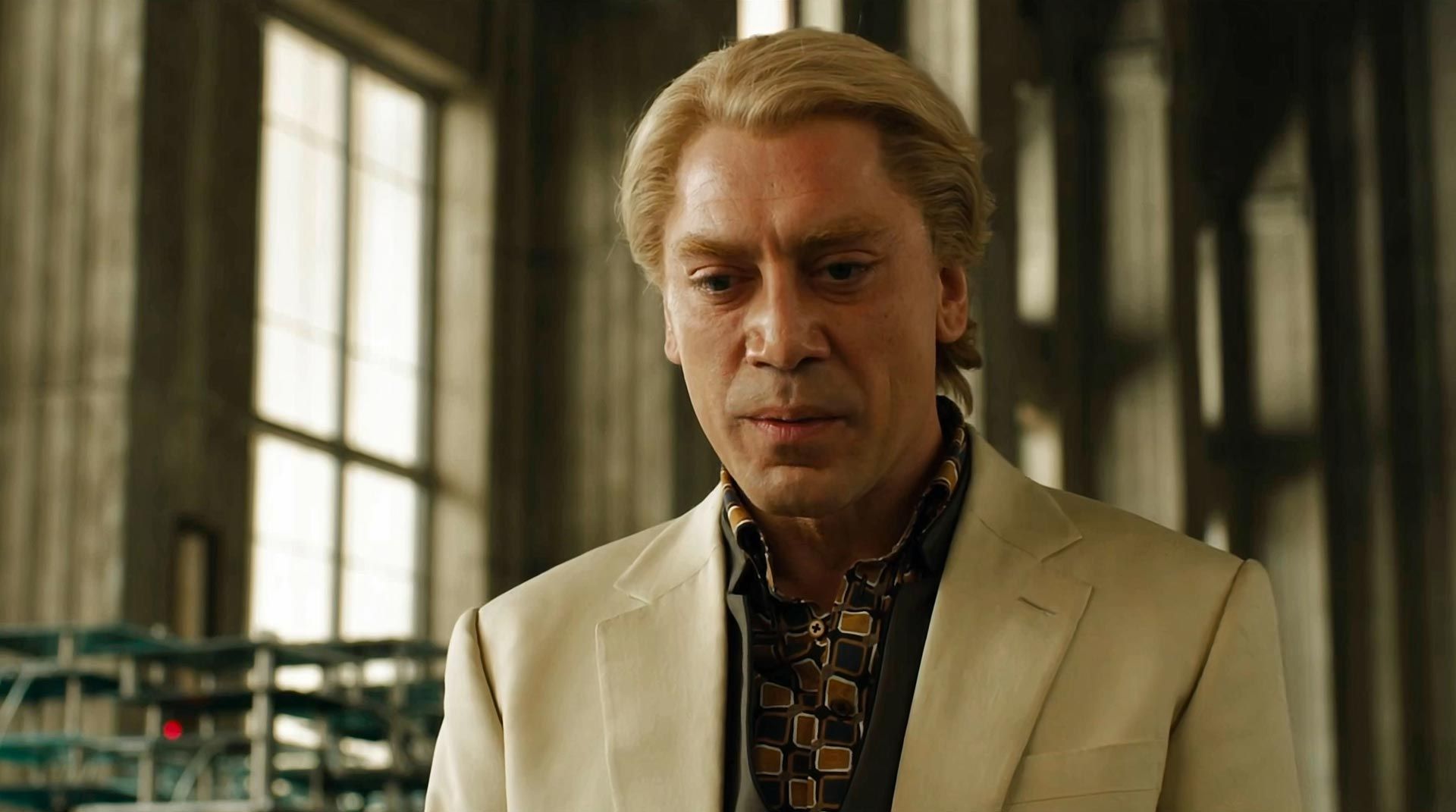One of my involuntary movie-viewing quirks is that I shake my head during particularly awe-inspiring scenes, or when confronted with beautifully composed shots. Normally, this doesn't cause a problem. In the case of Skyfall, however, I left the theater with one righteous neck ache.
Director Sam Mendes hasn't simply made an outstanding entry into the James Bond franchise, he's made an outstanding film, period. His pairing with brilliant cinematographer Roger Deakins, the script's attention to detail and thoughtful homages, and his ensemble of incredible actors combine to make Skyfall as sleek and exquisitely tailored as one of 007's suits. Its pacing is spot-on, and every performance is noteworthy; you'll find yourself fighting the urge to double back into the theater for a second viewing.
Mendes has mentioned that MGM’s financial troubles, which resulted in the suspension of production through 2010, were a blessing in disguise. Thanks to the delay, the script was fine-tuned, and the actors were given time to become thoroughly intimate with their characters. The director has gone back to the days when MI6 was at the center of Bond's plotline, and he's emphasized the presence and backstory of M (Judi Dench) beyond disembodied phone calls and intermittent appearances in cold, cavernous offices. This film wrenches Bond from the days of Cold War villainy into the decidedly modern world of Internet piracy. Skyfall also isn't afraid to show Bond as an aging character, growing out of shape and out of relevancy, metaphors for exploring the greater issue of why James Bond films are still pertinent to audiences. Themes of family, camaraderie and trust are prevalent, with Bond and M fleshed out in ways you've never seen. It's no coincidence that these subjects are being raised on the 50th anniversary of the Bond franchise, and Mendes expertly skirts the line between nostalgia and modernity without veering into ham-fisted territory.
Much of this is due to the formidable action sequences that serve as pillars between the meaty material. From the opening sequence, involving a foot chase on a high-speed train, to underwater fistfights to a scuffle shot entirely in silhouette amid a mirror-like skyscraper in Shanghai (a true cinematic achievement, and the stand-out of this film), these moments aren’t simply tightly strung with tension and shot so beautifully that you could freeze each frame and make it your screensaver, they also serve to set a relentless pace throughout the 143-minute film. You don’t feel a second of this movie's length – in fact, you can hardly even spare a moment to breathe. And I'd be remiss not to mention Thomas Newman's incredible score, thumping and pulsing below Deakins' breathtaking vision, interweaving the classic Bond notes in updated-yet-recognizable measure.
Daniel Craig is back in top form, as charismatic straightening his cufflinks amid a chase as he is struggling to complete a set of pull-ups. He allows us into the cracks of Bond’s facade, and what's beneath is enthralling and surprisingly relatable. Bond is still a god among men, but he's flesh and bone like the rest of us – and that flesh bleeds, those bones break. Javier Bardem as Raoul Silva is the true standout, without a doubt one of the greatest on-screen villains we’ve seen to date (notice I didn't say Bond villains; he single-handedly widens the net). As a slightly flamboyant, completely unhinged and totally unpredictable antagonist, he establishes his ability to usher discomfort in his wake within his first scene – surely a gamble on the part of Deakins and Mendes, and a testament to Bardem's skills. He enters a large warehouse many feet beyond the camera's focus, Bond seated (his back to the camera) in the foreground, and slowly walks toward 007, edging into focus by millimeters with each step, all the while casually telling a decidedly disturbing story. The shot is more than six minutes long, and it's a marvel, right up there with Heath Ledger's "pencil trick" in The Dark Knight.
Mendes doesn't make concessions when it comes to the film's less substantial roles, either. The excellent Ralph Fiennes is brought in as the new chairman of the Intelligence and Security Committee, and Ben Whishaw is Q, Bond's tech-savvy counterpart (in their few scenes together, their rapport establishes what's sure to be an incredibly fun relationship; insanely likable, Whishaw exudes something of a Peter Parker-esque sensibility). Even Bond girl Bérénice Marlohe, a relative newcomer to the screen, establishes her presence alongside the formidable acting talents of Craig and Bardem. And Naomie Harris crushes it as Bond's MI6 field colleague Eve: She's just as competent behind the wheel of a car, the scope of a gun or within the body-hugging silk of an evening gown, making an excellent example of what Bond's counterparts at the agency are capable of. And her chemistry with Craig is palpable -- it's butterfly-in-the-stomach-rustling stuff, the kind of on-screen pairing that most directors would chalk up to magic. The movie has it in spades.
Skyfall is the kind of film you'll find yourself waxing nostalgic, poetic and obsessive about. It completely delivers on the Bond experience, the in-theater experience, the action experience, the romantic experience, the visual experience. I could go on. There is so much to love about this movie, you'll feel shaken. And stirred.
Skyfall opens Nov. 9.


